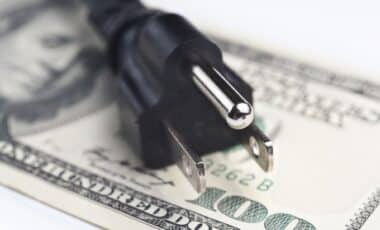EDF customers are set to save up to £676 annually on their energy bills thanks to the removal of daily standing charges. Yes, you read that correctly: these daily fees, which have been steadily draining your wallet, are about to disappear, giving you a breath of fresh air.
The End of Standing Charges: A Blessing?
Thanks to the intervention of Ofgem, the UK’s energy regulator, energy suppliers are now required to offer tariffs with zero standing charges alongside their regular plans. This monumental shift aims to relieve households, especially those struggling with energy debt. But don’t get too carried away – not everyone will benefit equally, and the pitfalls are all too real.
Savings or a Consumer Trap?
Under this reform, EDF and other suppliers will be compelled to offer tariffs without standing charges. And hold on to your seat, because if you’re on a two-year fixed tariff, you could save up to £676 a year. Gone are the 60.99p daily charges for electricity and 31.66p for gas. Sounds too good to be true, right? But beware: these savings may not be as easy to achieve for everyone. Households with higher energy consumption, often due to medical reasons, could find their bills soaring instead.
Standing Charges: A Nightmare for Low Consumers
Standing charges have been disproportionately unfair for low-consumption households, as they represent a disproportionate portion of the bill. In plain terms, the less you use, the more these charges become a burden. And this is precisely what Ofgem is attempting to address. Goodbye to daily charges, and hello to savings!
Support Measures That May Fall Short
But not everything is rosy. Ofgem has promised to provide safeguards for struggling households, yet these reforms haven’t truly benefited prepayment meter users, who are often the most vulnerable.
These households are the hardest hit by standing charges, and surprisingly, no meaningful action has been taken to help them. The grand promises of reducing these charges have thus far been little more than empty words. Who really benefits from this reform? Certainly not everyone.
Peter Smith, director of policy and advocacy at National Debtline, pointed out that energy debt is now the second-largest source of debt for British consumers, just behind credit card debt. Last year, the average amount of energy debt rose by 37%, reaching a staggering £1,541.
The Reality Behind the Reform’s Promises
Some argue that all political parties promised to reduce standing charges during the elections. Yet, today, very little has changed for the most vulnerable households. A promise unfulfilled, or at least only partially realised for certain sections of the population.









